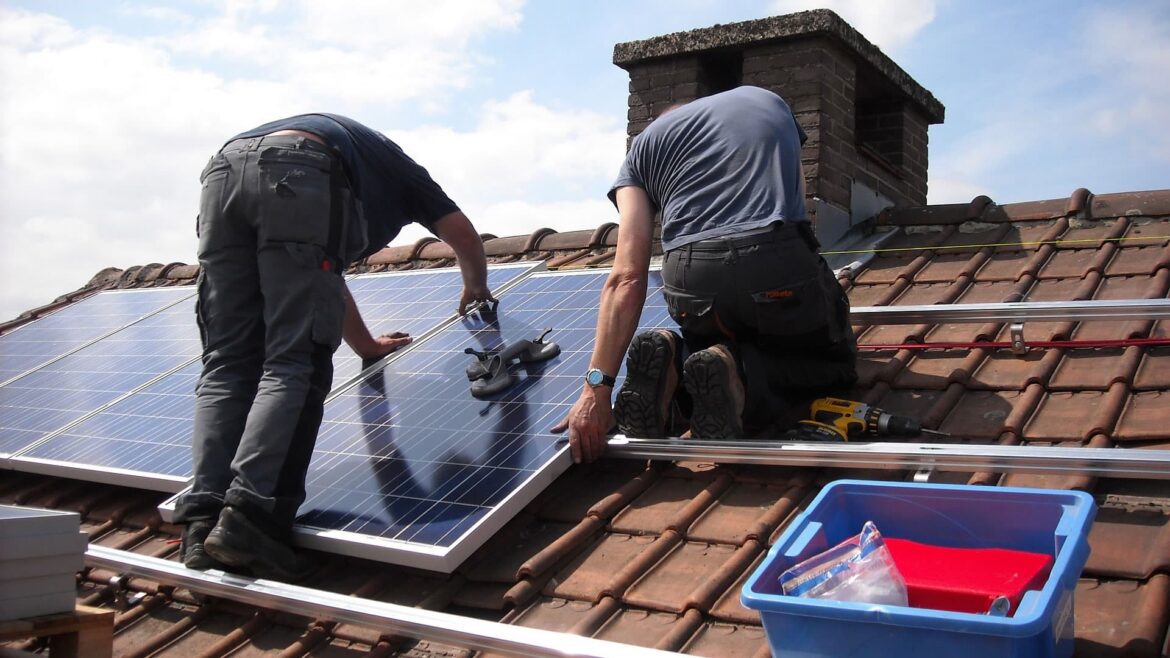There are few needs more basic than the shelter a roof provides. Fortunately, roofs are quite durable and will protect you from the elements for a long time before needing replacement. Eventually, your roof will need repaired or replaced. When it does, the cost is likely to be steep. Unless you choose your contractor carefully, you can spend way too much for a lousy job.
To ensure success and avoid roof goofs, hire a reliable roofing contractor, get in writing exactly what will be done, and keep a close eye on the job as it progresses. There are many local resources to find reputable roofers and you don’t have to pay more to get great work.
Quality of work should be your biggest concern. No job is a bargain if your roof leaks or looks terrible. But once you have identified roofers that measure up on quality factors, price becomes critical.
We recently worked with three homeowners to get bids on roofing jobs for their homes. The price differences on the same job were striking. For one project, prices ranged from $11,641 to $17,922 — a difference of $6,281. For another job, quotes ranged from $7,214 to $10,985 — a difference of $3,771. For the third, prices ranged from $13,345 to $16,847 — a difference of $3,502.
The message is obvious: No two companies bid roofing jobs the same.
A review of the roofers’ quality on previous jobs revealed end products with quality standards that didn’t always align with prices. Don’t assume a low bid signifies you’ll get lousy work: For each of these three jobs, our shoppers received low prices from top-rated outfits. Our experience with roofing bids is that there’s often no consistency: Contractors charge high prices for some jobs and low ones for others.
A Picture is Worth a Thousand Words
If you can’t be present during the estimate, email your specifications in advance to make sure everybody is bidding the same job with the same quality of materials. Send pictures if you can. Pictures will help the contractors better understand your current condition and will give them a chance to ask additional questions before providing a bid.
Before deciding on any contractor, ask for proof that it is licensed and insured. In addition, get a copy of the warranty from the manufacturer of whatever roofing materials are used. Also get a warranty on the roofer’s work. On asphalt composite shingle roofs, manufacturers’ guarantees range from 30 years to 50 years. On built-up, modified bitumen, or single-ply flat roofs, warranties range from less than 15 to more than 25 years.
Roofers’ guarantees of their workmanship usually run from one to two years, but you may be able to get one for five or even longer. Have the roofer write into your contract: “In addition to all other warranties, if roof leaks within X number of years, except as a result of accidental or weather related damage, contractor will bear the cost of labor and materials to eliminate all leaks.”
Get a fixed-price contract. Specify exactly what roof areas are to be covered and other details, such as whether old shingles are to be removed, whether flashing is to be replaced, who is responsible for cleaning up and hauling away debris, and exactly what types and weights of materials are to be used.
While you should be able to obtain a binding contract at the estimate price, most roofers will insist on provisions for extra charges if they find damaged fascia, sheathing or structural lumber. Most contracts state that required carpentry will be performed on a “per-foot” or “time-and-materials” basis. Make sure your contract states how charges will be computed, typically per square foot or linear foot.
Avoid roofers that require upfront payments of 50% or more. A 10 percent deposit to secure a spot on a company’s schedule and an up front payment of up to 30% at the beginning of the project is reasonable, but beware the home-improvement scammers who demand a large deposit to simply secure a lace on the schedule.
Arrange to pay the remainder of the amount owed for the entire job after the work has been completed. Most roofers allow customers to withhold remaining payments until the job is complete.
If problems arise after the repair or replacement, report them immediately. Your contractor is likely not responsible for damage that happens over a period of time because of a failure to report an issue in a timely manner. Reputable contractors want to know if there are any problems right away so they are given an opportunity to assess the situation and rectify it immediately. After all, in today’s competitive environment, reviews from satisfied customers are key to contractors securing additional business.
When your project has been completed to your satisfaction, do your contractor a favor and leave a good review right away. If there are problems, give them a chance to resolve the issues before leaving a review. Again, any reputable contractor will be happy to quickly resolve any problems related to materials or workmanship.



Great post! I’m going through this process now and it’s so frustrating. Thanks for the tips. I’ll call you to set up a time to give me a bid for my roof in the North Hills.
Hey, this is great. I’ve been through this process before and couldn’t have been more confused. Thanks for the great tips.